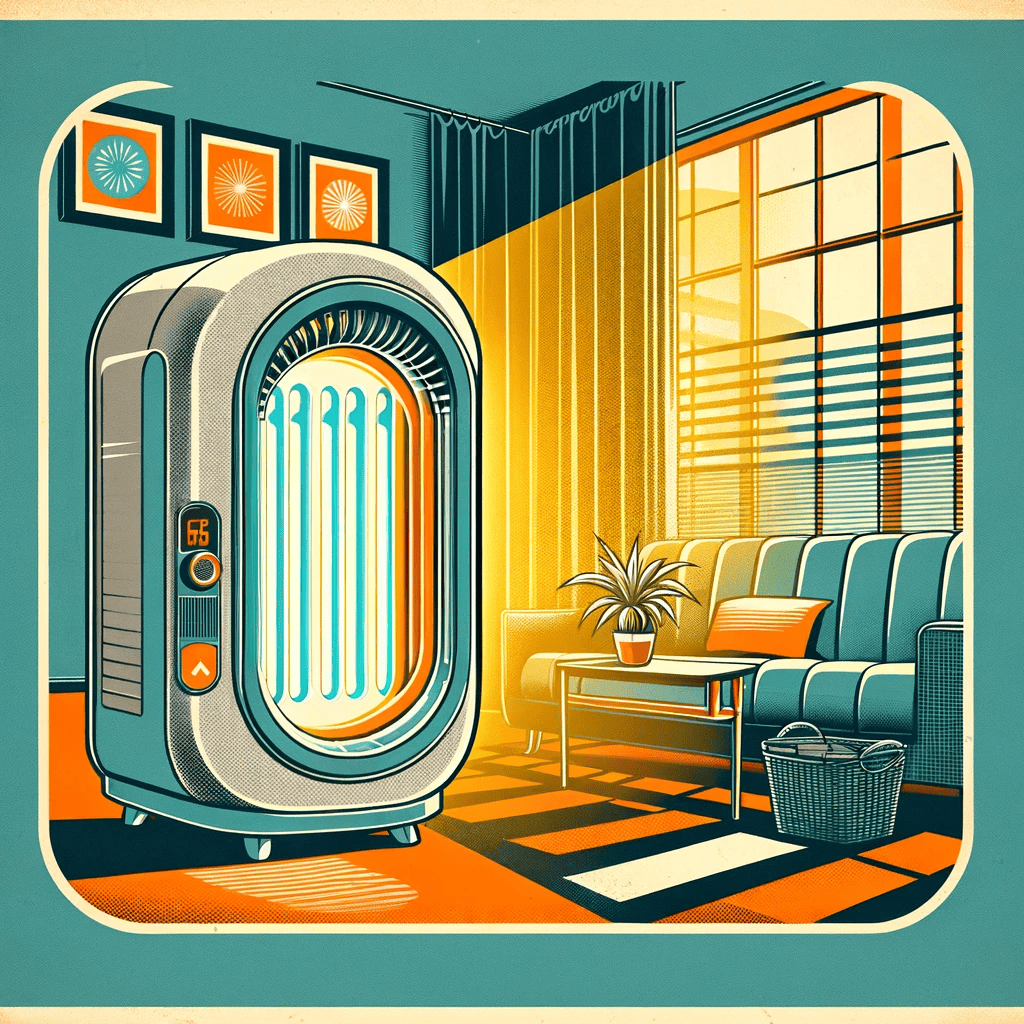Whether air purifiers are safe is nuanced, depending on the type of air purifier in question. Air purifiers are designed to improve indoor air quality, but their safety and efficacy can vary significantly based on their technology.

Contents
Types of Air Purifiers and Safety Concerns
Filtered Air Purifiers:
These purifiers, particularly those with High-Efficiency Particulate Air (HEPA) filters, are generally considered safe. Without producing harmful by-products, HEPA filters can remove at least 99.97% of airborne particles, including dust, mold, bacteria, and other pollutants.
Electrostatic Air Purifiers:
These devices use static electricity to capture airborne particles. While they can effectively trap particulates, common allergens, and dust, concerns arise with the potential for ozone production, a by-product of the electrostatic process. Ground-level ozone can harm health, causing respiratory issues and other health problems
UV Light Air Purifiers
Utilizing UV-C light, these purifiers aim to destroy the DNA of microorganisms, such as viruses and bacteria, in the air. However, they, too, can produce ozone as a by-product, posing risks to indoor air quality and health.
Health Risks and Recommendations
- Ozone Production: Some air purifiers, particularly those using electrostatic and UV-C technologies, can emit ozone. Ozone is a lung irritant that can exacerbate respiratory conditions like asthma and lead to other health issues, including coughing, throat irritation, and difficulty breathing.
- Ionizers: Ionizers charge airborne particles, making them settle out of the air. However, they can produce ozone as a by-product. Moreover, without sufficient cleaning of surfaces, the pollutants may re-enter the air, making these devices less effective in improving air quality.
Safest Options
Mechanical Filtration
Air purifiers that use mechanical filtration, such as HEPA filters combined with activated carbon, are among the safest options. These filters do not emit harmful by-products and effectively remove particulate and gaseous pollutants from the air.
No Ozone Generation
Choosing air purifiers that do not generate ozone is recommended to ensure safety. This includes avoiding ozone generators, ionizers, and certain UV air purifiers not designed to prevent ozone production.
While air purifiers can be crucial in improving indoor air quality, selecting a type that does not compromise health is essential. Filtered air purifiers using HEPA and activated carbon filters are generally considered the safest options for home use, effectively cleaning the air without generating harmful ozone or other pollutants. Consider the technology behind an air purifier and its potential impact on health and safety before purchasing.
In summary, when considering the safety and effectiveness of air purifiers, it’s crucial to understand the technology they employ and the potential side effects associated with each type. Filtered air purifiers, especially those with HEPA and activated carbon filters, stand out as the safest choices for residential use. They effectively remove many airborne contaminants without emitting harmful by-products like ozone.
Key Takeaways for Choosing a Safe Air Purifier:

Opt for Mechanical Filtration
Air purifiers utilizing mechanical filtration methods, such as HEPA and activated carbon filters, are highly recommended. They can trap pollutants without producing ozone, making them a safer option for improving indoor air quality.
Avoid Ozone Generators
Devices that generate ozone intentionally or as a by-product should be avoided. Ozone is known to be a lung irritant and can pose significant health risks, especially to individuals with respiratory conditions or sensitivities.
Be Cautious with Ionizers and UV-C Purifiers
While ionizers and UV-C light purifiers can offer benefits such as reducing airborne bacteria and viruses, they may also produce ozone. Verifying that these devices are designed to minimize or eliminate ozone production before useis essential.
Maintenance and Proper Use
Ensuring air purifiers are adequately maintained and used according to the manufacturer’s instructions can significantly impact their safety and effectiveness. Regularly replacing filters and following usage guidelines can help maximize benefits and minimize risks.
Consider Room Size and Purifier Capacity
Matching the air purifier’s capacity to the room size is crucial for effective air cleaning. An undersized purifier may not effectively clean the air, while an oversized unit could consume unnecessary power and may not operate as efficiently as intended.
Research and Recommendations
Consulting reputable sources and product reviews can provide additional insights into the safety and efficiency of air purifiers. Looking for certifications from organizations like the Environmental Protection Agency (EPA) or the Association of Home Appliance Manufacturers (AHAM) can also guide you toward safer options.
By prioritizing air purifiers that rely on mechanical filtration and avoiding those that generate harmful by-products, consumers can enhance indoor air quality safely. Remember, the goal is to breathe cleaner air without introducing new health risks into the home environment.


Pingback: Dust Busters: Top Techniques for Cleaner Air at Home
Pingback: The Technology Behind Air Purifiers: Your Guide to Clean Air
Pingback: Optimizing Air Purifier Use for Health and Wellbeing
Pingback: Air Purifiers for Mold Spores: Guide to Healthier Air
Pingback: UV-C Light Filters and PlasmaWave Technology | Clean Air Lab
Pingback: Are There Side Effects to Using Air Purifiers?
Pingback: Portable vs. Whole-House Air Purifiers: Which is for You? |
Can you be more specific about the content of your article? After reading it, I still have some doubts. Hope you can help me.
Pingback: Best Times for Air Purifier Deals – A Shopper’s Guide
Hi! I just wanted to ask if you ever have any problems with hackers? My last blog (wordpress) was hacked and I ended up losing several weeks of hard work due to no data backup. Do you have any solutions to prevent hackers?